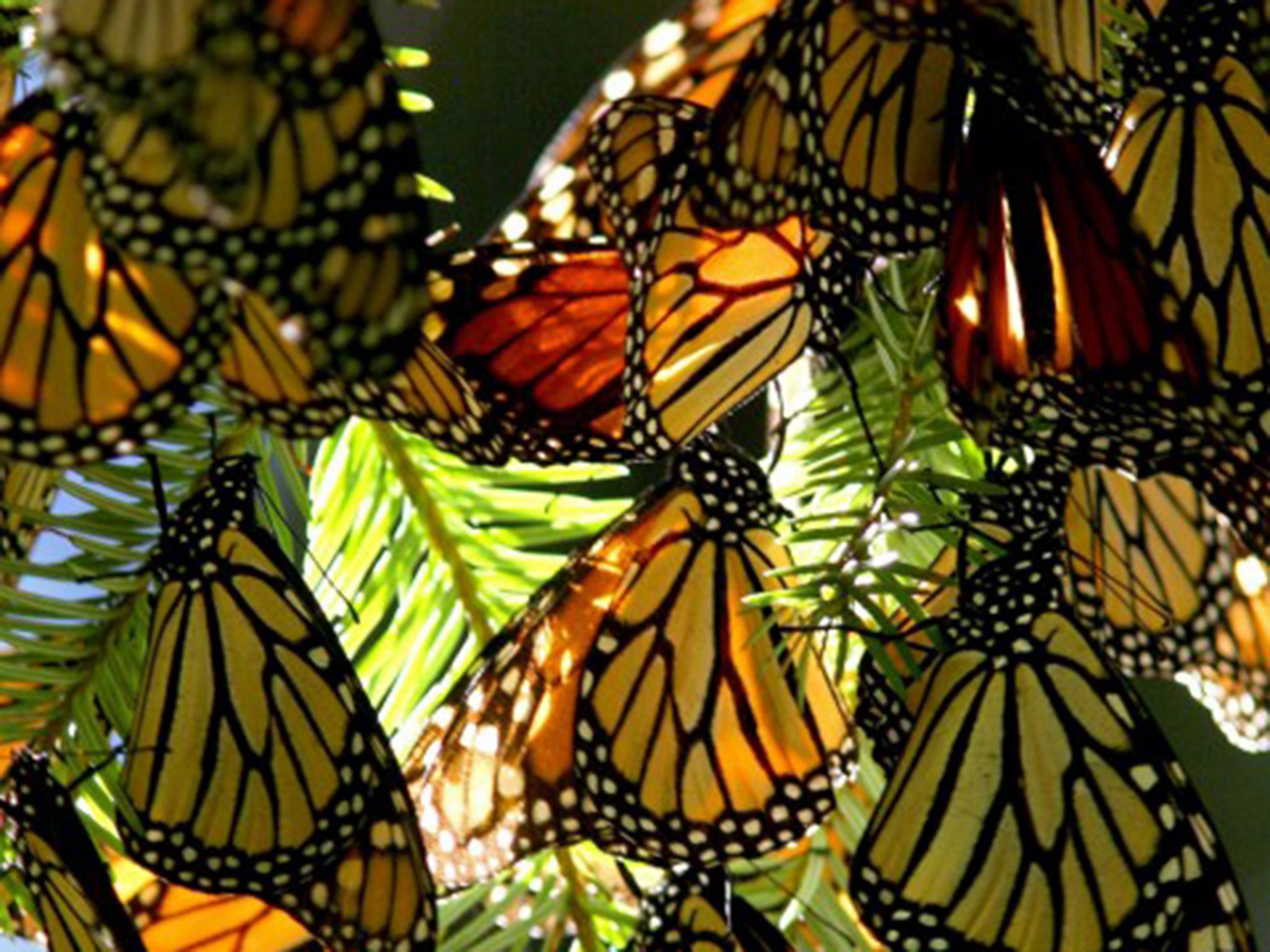
Your support helps us to tell the story
From reproductive rights to climate change to Big Tech, The Independent is on the ground when the story is developing. Whether it's investigating the financials of Elon Musk's pro-Trump PAC or producing our latest documentary, 'The A Word', which shines a light on the American women fighting for reproductive rights, we know how important it is to parse out the facts from the messaging.
At such a critical moment in US history, we need reporters on the ground. Your donation allows us to keep sending journalists to speak to both sides of the story.
The Independent is trusted by Americans across the entire political spectrum. And unlike many other quality news outlets, we choose not to lock Americans out of our reporting and analysis with paywalls. We believe quality journalism should be available to everyone, paid for by those who can afford it.
Your support makes all the difference.The Monarchs appear as soon as you start climbing the steep path through the ancient Oyamel fir forest, in the Mexican state of Michoacán. Even as the first few butterflies flutter past, you already know this is going to be special. But nothing, not even the vivid footage you’ve seen on nature programmes, can prepare you for the millions of big, bold, orange and black butterflies as you near the 3,300-metre mountain peak.
Up here, the endangered firs are covered in Monarchs huddled together for warmth. But as the sun breaks through and heats up the open passes, vast numbers fly lower down looking for sustenance. As they swarm past, tickling your face with their fragile wings, you are suddenly walking through a glorious butterfly storm. The sonic wave of fluttering is interrupted only by delightful bright green humming birds which also feed off juicy milkweed nectar.
Every year, millions of Monarchs fly down from Canada and northern United States to one of 19 known hibernation areas in Mexico. This year they are spread across 2.8 acres, compared with only 1.55 acres in 2014. Good news, but according to the World Wildlife Fund, pesticides, climate change and deforestation continues to threaten this phenomenon.
This year almost half the Monarchs ended up here in El Rosario, part of the stunning Sierra El Campanario reserve, 225km from Mexico City. It’s a long drive, and a tough hike, but grab any chance you can to walk among the Monarchs. It’s a sensory explosion you’ll never forget.
Join our commenting forum
Join thought-provoking conversations, follow other Independent readers and see their replies
Comments